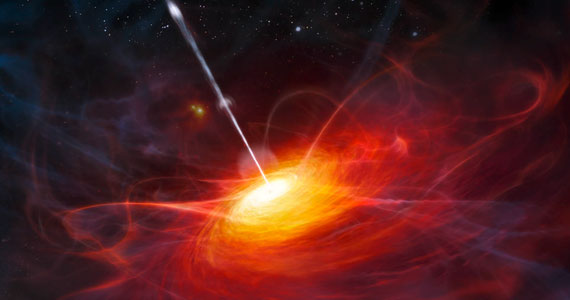Astrophysics Research

Drexel is a recognized leader in astrophysics research, with both students and faculty contributing to the field. Learn more about our faculty’s current research in astrophysics below.
Astrophysics Research Topics
- Active Galactic Nuclei/Quasars
- Compact Binary Stars
- Cosmology
- Designing the "Petaflops" Computer
- Large-Scale Structure
- Numerical Hydrodynamics
- Parallel Computing
- Rotational Instabilities
- Star Clusters and Stellar Dynamics
Faculty Conducting Research in Astrophysics
Current Astrophysics Research Projects
Astrophysics Research Facilities
- The Numerical Astrophysics Facility emphasizes theoretical and numerical studies of stars, star clusters, the early universe, galaxy distributions, cosmology modeling, and gravitational lensing. The facility employs special purpose high-performance computers, such as the Gravity Pipeline Engine (GRAPE), a new Beowulf cluster (128 processors, 128G RAM, 2 TB RAID disk), and a system using Graphics Processing Units to achieve computational speeds of up to a trillion floating point operations per second.
- The Joseph R. Lynch Observatory houses a 16-inch Meade Schmidt-Cassegrain telescope equipped with SBIG CCD camera.
- Drexel faculty and students actively analyze data from the Sloan Digital Survey, which operates a 2.5-m telescope at Apache Point, New Mexico, and the Large Synoptic Survey Telescope to be built in Chile (2020).